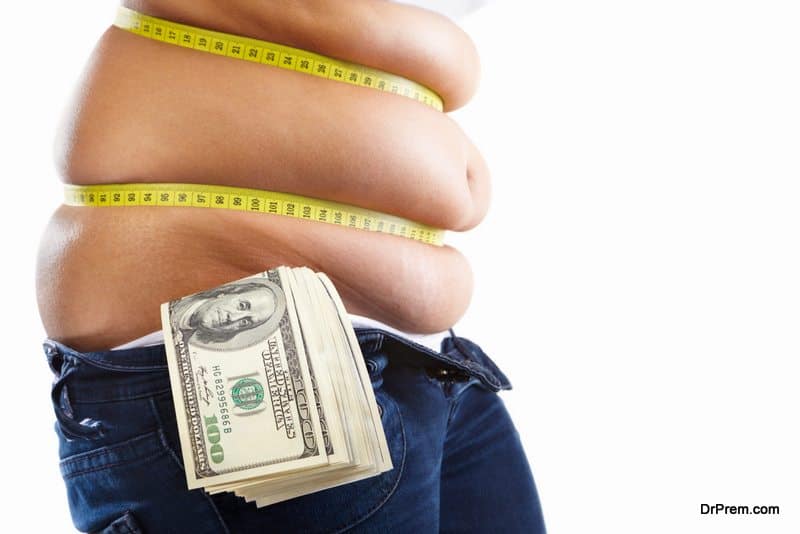The obesity tax, as envisioned by Mike Bloomberg, the former NYC Mayor and WHO ambassador and Larry Summers, the former secretary of the US Treasury may not seem to taste sweet for the global population but seems to bode well for their future health.
A task force envisaged by them to determine the Fiscal Policy on health-boosting obesity and other wellness taxes by taxing sugar-sweetened beverages may help in reducing global obesity epidemic.
This global group including Uruguayan President, ex-prime minister of New Zealand and leaders from China, Nigeria and Britain will evaluate implementable health tax policies with the proper assessment of the tax levels depending on the region. It would also recommend about proper utilization of the sugar or soda tax in various health and educative programs.
The WHO strongly recommends taxing sugary drinks to fight global obesity and diabetes:
Between 1980 and 2014, obesity has doubled affecting 500 million global populations. According to the WHO, 2.8 million people die from obesity or overweight conditions and mind you this is not only the problem of rich nations!
A report from Mckinsey Global Institute says that obesity-related healthcare costs are $2 trillion around the world annually. Obesity is one of the leading man-made social burdens almost comparable to the ill effects of smoking.
Why sugar tax?
According to the scientists, sugary beverages alone contribute most to global obesity epidemic. The $870 billion worth global soft drink market has reacted by labeling health tax as discriminatory as the effects of this tax are unproven.
According to Larry Summers, sugar is today what tobacco was four decades back; both are equally dangerous in causing serious non-communicable diseases. Bloomberg has a more compelling reason that obesity, tobacco and alcohol are the three prime factors in causing preventable non-communicable diseases, which today, are bigger killers than communicable diseases.
Can sugar tax help in reducing obesity?
Let us take the example of Norway where sugar tax exists since 1922. In 2018, there was a massive 83% hike in the tax. The country’s sugar consumption is fairly low about 27Kgs on an average compared to the average American consumption of 34 Kg.
1 out of 6 children in Norway is overweight compared to 1 out of 3 in the US and UK. Norway has set its goal to reduce sugar consumption of every citizen by 12.5% by 2021. This, however, follows the rationale behind sugar tax on public health improvement. The country has somehow managed to keep the obesity rate at check.
But what researches say? What other countries have achieved?
- Last year, the Irish Beverage Council went against the government in levying sugar tax stating that international evidence does not establish that it helps in meeting the public health objective of reducing obesity and other related ailments.
- On the same platform, a spokesperson of Irish Heart Foundation claimed that research had shown a consumption cut in sugary drinks post sugar tax imposition in Mexico and France.
Sugar tax has not yet achieved public health objectives:

- A modest decline in consumption of sugar-sweetened drinks is seen but that is not long lasting.
- No significant evidence of sugar tax impact in reducing BMI (Body Mass Index), obesity and other associated ailments.
- Since most of the sugar taxes were implemented recently, it is too early to draw a conclusion of the impact.
Fact check of sugar tax impact in other countries:
Study reports about the consumption impact of sugar tax from few countries reveal the following:
Mexico: Levied 10% tax on sugary soft drinks from January’14.
- Within 12 months, the intake of sugary drinks dropped by 6% on an average.
- The lower socio-economic groups led the consumption decline (as published in Lancet April’18).
- But data from Irish Beverage Council states that the sales of fizzy drinks picked up in 2015 by 0.39% though at a slow pace than that in 2013.
France: Imposed € 0.72 /liter sugar tax on sugar loaded or artificially-sweetened soft drinks in 2012.
- According to reports cited by the Irish Heart Foundation, there was a 3.3% decrease in soft drink consumption.
- But a 2015 report shows a 4.2% high soft drink consumption compared to that in 2011, a year before the tax imposition.
Denmark: Sugar tax prevails since 1930s. It was hiked in 2010 but was abolished in 2013.
- Soft drink consumption was gradually declining modestly in 2008 and 2009 but increased a bit in 2010.
- In 2011, a 3% increase in sales was observed which reduced by 2.3% in 2012 but was up by 3.1% in 2013 due to a boost in consumption caused by tax reduction before abolition.
- In 2014, there was a 6.8% rise in consumption post tax abolishment.
Hungary: Sugar sweetened and energy drinks, confectionery and salted snacks are taxed since 2011. The demand for sweet drinks has been experiencing a dramatic fall by 13.5% in 2007-11 and by 15% in 2011-13. [http://www.thejournal.ie]
Why do sugar taxes fail to lower the consumption as desired?
This somewhat goes against the basic principle of economics that higher the price of the product, the lesser is its demand. What happens in the case of taxing sugary drinks can be attributed to the following:
- Sugar addiction is tough to get rid of. Therefore, after an initial cessation in consumption, the consumers finally give in to this habit by stretching their budget.
- The companies can absorb the tax hike and leave the price of sugar-drinks untouched.
- Consumers find cheaper substitutes to satisfy their sweet pleasures.
- Consumers even can opt for low cost products of the same brand and maintain their consumption rate.
Raising awareness and education can only meet the ultimate objective of improving public health:
Therefore, envision of Mike Bloomberg and Larry Summers carries lot of sense in generating a long term impact. Life with less sugar can be sweeter, why to invite heath risks by overconsumption?
Sugar consumption having zero nutritional benefits results in more external costs considering the increased healthcare burden on the society and lesser productivity due to obesity-related health issues. People are also not aware of the personal costs which may arise from sugar consumption, which needs to be driven in their minds through health awareness and educative programs. New tax policies on salty snacks and processed foods are likely to be on the cards.







